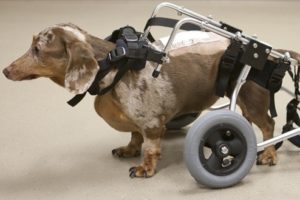abuse
Strong link found between victimization, substance abuse
A strong link between victimization experiences and substance abuse has been discovered by researchers at the University of Illinois at Chicago.
The correlation is especially prevalent among gays, lesbians and bisexuals — more so than in heterose…
Chronically ill children are 88 percent more likely to suffer physical abuse
Children with chronic health conditions are 88% more likely to suffer physical abuse than healthy children, according to research in the March issue of Acta Paediatrica. They are also 154% more likely to suffer a combination of physical abuse and ex…
Kids with ADHD much more likely to develop substance abuse problems as they age
Children with attention-deficit hyperactivity disorder are two to three times more likely than children without the disorder to develop serious substance abuse problems in adolescence and adulthood, according to a study by UCLA psychologists and col…
Childhood physical abuse linked to peptic ulcers
TORONTO, ON — Victims of childhood physical abuse are more than twice as likely to develop ulcers than people who were not abused as children, according to a new study from researchers at the University of Toronto.
“We found a strong and signif…
Training the brain to think ahead in addiction
Philadelphia, Pa, 27 January 2010 – The growing numbers of new cases of substance abuse disorders are perplexing. After all, the course of drug addiction so often ends badly. The negative consequences of drug abuse appear regularly on TV, from stori…
Support not punishment is the key to tackling substance abuse and addiction among nurses
As many as ten to 20 per cent of nurses and nursing students may have substance abuse and addiction problems, but the key to tackling this difficult issue – and protecting public safety – is support and treatment, not punishment. That is the key mes…
Genetic trait could triple odds of whites’ susceptibility to heavy cocaine abuse
COLUMBUS, Ohio — Nearly one in five whites could carry a genetic variant that substantially increases their odds of being susceptible to severe cocaine abuse, according to new research.
This genetic variant, characterized by one or both of two…
Prescriptions for teens and young adults on the rise
Adolescents and young adults are most likely to abuse prescription medications. Yet prescription rates for controlled medications, or drugs the Drug Enforcement Administration deems as having the potential for abuse, have nearly doubled for those ag…
Child/teen sexual and physical abuse linked to fibroids in premenopausal women
(Boston) – Researchers from Boston University School of Medicine (BUSM) have found that both physical and sexual abuse history were positively associated with a higher incidence of uterine fibroids later in life. These findings currently appear on-l…
APHA 2010: Study finds funding for substance abuse in Indiana lacking
An Indiana University study found that Indiana spends more on the health care consequences of substance abuse than on its prevention.
Eric Wright, director of the Center for Health Policy at Indiana University-Purdue University Indianapolis, said…

